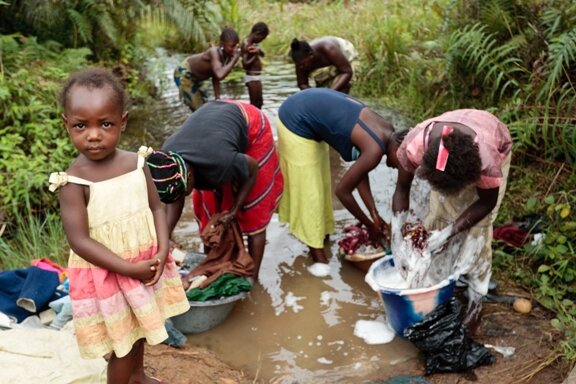By Wangechi Thuo and Andrew Carlson
The Community Eye Health Journal announced in November that the National Blindness Prevention Programme (PNLC) in Mali, established in 1998, is on track to eliminate trachoma as a cause of blindness by 2015.
Trachoma is a bacterial disease that is transmitted through flies that come into contact with infected people or person to person contact. In areas where people live in close proximity, the disease spreads at an alarming rate, and can quickly infect entire communities. Repeated infection causes eyelids to turn inward and scratch the cornea, leaving an infected individual one unbelievably painful step closer to blindness with every blink they take, a process called trachomatous trichiasis. In 2011 the WHO estimated that 7,260,960 people around the world had this form of trichiasis.
Just before PNLC’s inception, Mali bore a generous portion of the global burden: during a national survey conducted in February 1996-May 1997, an estimated 85,700 people needed trichiasis surgery.
Since then, thanks to a strong commitment by the government of Mali, the PNLC has consolidated support from various partners, including The Carter Center, Helen Keller International (HKI), the United Stated Agency for International Development (USAID) managed by RTI international, The END Fund, and the International Trachoma Initiative (ITI). The PNLC has set a high standard in trachoma elimination that similar national initiatives throughout sub-Saharan Africa strive to emulate.
Three important benchmarks help explain how Mali has achieved this success:
- Distribution of antibiotics: Through district-level mass drug administration, the PNLC has reduced active disease well below the recommended threshold in 84% of the districts in which the disease is present
- Surgical Efficiency: Since 2009, the PNLC almost halved the surgical backlog throughout the country; in 2011 alone, 8,510 trichiasis surgeries were conducted by only a handful of surgeons
- Preventive sanitation: Since 2009, 53,090 latrines have been constructed allowing safer disposal of waste
To foster community awareness, the PNLC has developed a primary school curriculum on trachoma, trained community leaders in trachoma prevention and ensured the dissemination of health messages through radio broadcasts with help from HKI.
PNLC’s successes are even more laudable as they were achieved in spite of the military coup d’état in March 2012, which elicited a considerable decrease in financial support to the Malian government.
With support from partners, Mali is less than one year away from achieving the goal of trachoma elimination and is positioned to celebrate this achievement, five years ahead of the global elimination date. Mali’s success story and lessons learned can provide can also be example for more countries throughout the world.



